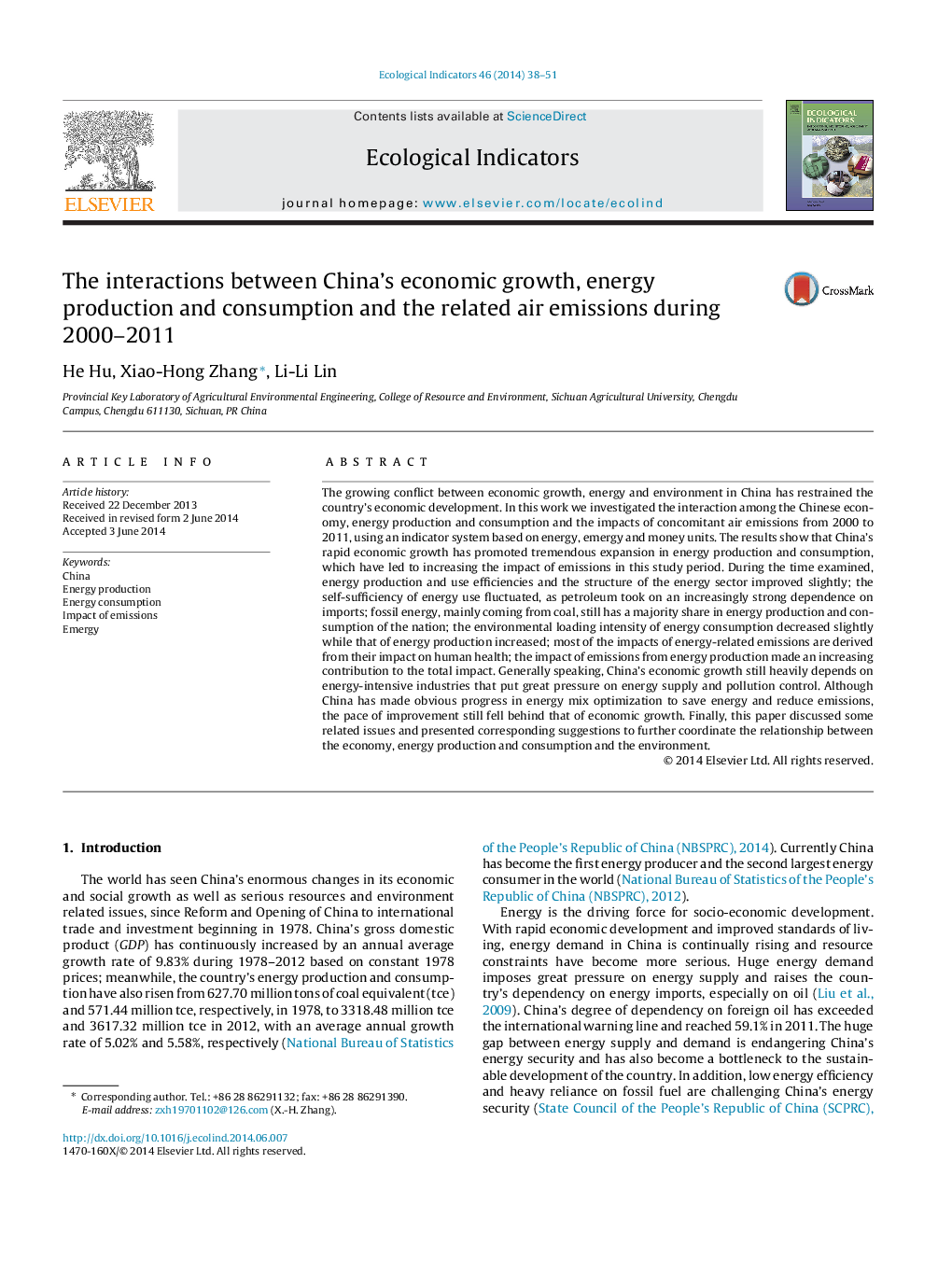| Article ID | Journal | Published Year | Pages | File Type |
|---|---|---|---|---|
| 6294829 | Ecological Indicators | 2014 | 14 Pages |
Abstract
The growing conflict between economic growth, energy and environment in China has restrained the country's economic development. In this work we investigated the interaction among the Chinese economy, energy production and consumption and the impacts of concomitant air emissions from 2000 to 2011, using an indicator system based on energy, emergy and money units. The results show that China's rapid economic growth has promoted tremendous expansion in energy production and consumption, which have led to increasing the impact of emissions in this study period. During the time examined, energy production and use efficiencies and the structure of the energy sector improved slightly; the self-sufficiency of energy use fluctuated, as petroleum took on an increasingly strong dependence on imports; fossil energy, mainly coming from coal, still has a majority share in energy production and consumption of the nation; the environmental loading intensity of energy consumption decreased slightly while that of energy production increased; most of the impacts of energy-related emissions are derived from their impact on human health; the impact of emissions from energy production made an increasing contribution to the total impact. Generally speaking, China's economic growth still heavily depends on energy-intensive industries that put great pressure on energy supply and pollution control. Although China has made obvious progress in energy mix optimization to save energy and reduce emissions, the pace of improvement still fell behind that of economic growth. Finally, this paper discussed some related issues and presented corresponding suggestions to further coordinate the relationship between the economy, energy production and consumption and the environment.
Related Topics
Life Sciences
Agricultural and Biological Sciences
Ecology, Evolution, Behavior and Systematics
Authors
He Hu, Xiao-Hong Zhang, Li-Li Lin,
